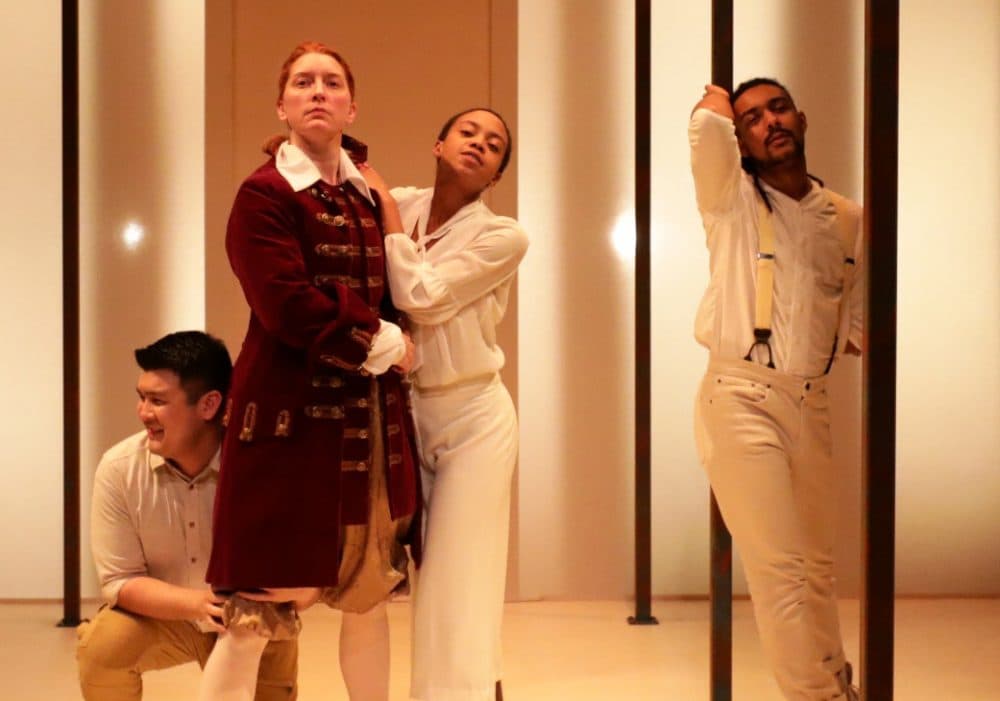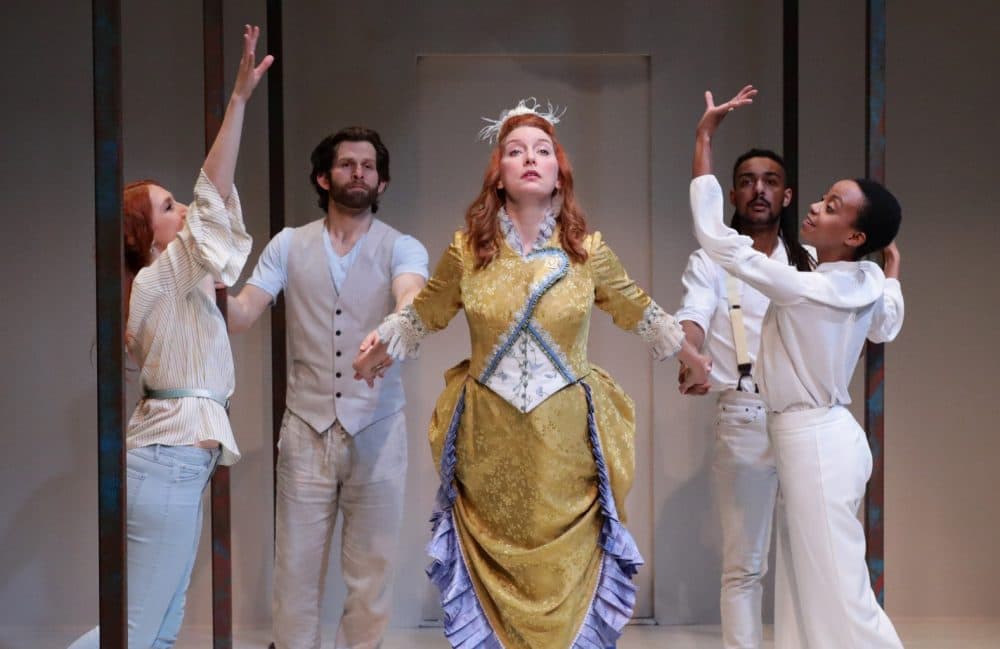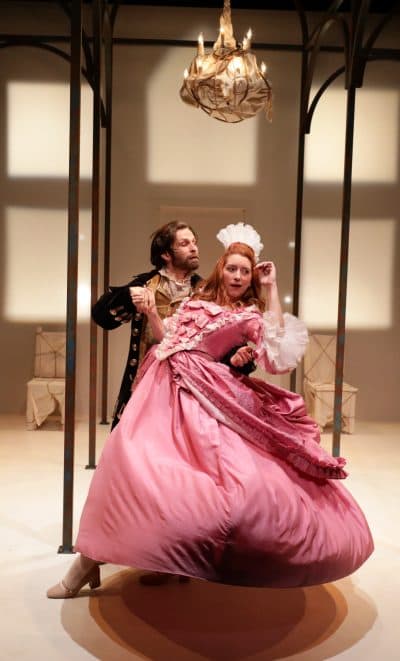Advertisement
Review
The Lyric Stretches Boundaries Of Sex And Time In 'Virginia Woolf’s Orlando'

Boys will be girls — and stay that way — in "Orlando," the phantasmagoric, century-hopping 1928 "biography" inspired by Virginia Woolf’s love affair with Vita Sackville-West.
What’s more, contemporary playwright Sarah Ruhl is as besotted with Woolf’s gender- and genre-bending tome as Woolf was with the amorous, aristocratic Sackville-West. So, wisely, Ruhl’s 2003 adaptation — entitled “Virginia Woolf’s Orlando” and currently receiving a Story Theatre-esque treatment by the Lyric Stage Company of Boston (through March 25) — pares away much of the history, both English and literary, enfolded in Woolf’s freewheeling, time-traveling tale to concentrate on Orlando’s personal, pansexual journey — with all the prescient implications it may have for these less binary times.
“I think the time is right for ‘Orlando,’ ” Ruhl told the Boston Globe. “Virginia Woolf couldn’t have imagined the trans movement, but she relished the idea that the mind of the artist is androgynous and wanted to open people up to possibilities.” Precisely so, but still, Woolf wasn’t writing “The T Party.” “Orlando,” more fantastic yet less experimental than most of the feminist icon’s works, is a pointed if picaresque exploration of gender liquidity and art that would pry open the door to “A Room of One’s Own.” It is also, as Sackville-West’s son, Nigel Nicolson, famously observed, “the longest and most charming love letter in literature.”
But at the Lyric, despite the starring roles played by Woolf’s bewitching protagonist and prose, “Orlando” comes across as more a cartoon romp through centuries, stereotypes and flip-flopped chromosomes than a provocative if parodic exploration of gender and temporal fluidity in which, tellingly, the sexes must conjoin to make an artist.
Helmed by Lyric Stage associate artistic director A. Nora Long, the theater piece (which was commissioned in 2003 by Los Angeles-based Piven Theatre Workshop and made its New York debut in 2010) becomes a sort of tripping burlesque at the center of which Caroline Lawton is a smart, charming, sometimes death-obsessed but hardly charismatic or androgynous Orlando. (By contrast, Tilda Swinton, the Orlando of Sally Potter’s 1992 film, is eerily gender-inclusive.)

The sketchiness, if not the clownishness, is to some extent inevitable. Orlando, after all, is born a 16th-century English gentleman whose shapely legs and youthful vigor entrance the moribund Queen Elizabeth, who commands the lad: “Do not fade, do not wither.” After falling desperately in love with a robust Russian princess who toys with and then jilts him after skating through a Winter Olympics-worthy take on the Great Frost of 1608, the young man is appointed ambassador to Constantinople, where he sleeps through an uprising and awakes — nonplussed — a woman.
From there, the female Orlando hurtles through several centuries, trying on her both corseting and liberating new identity. Along the way, in keeping with “the spirit of the age,” she rejects a braying, stifling archduke/duchess and eventually finds love with a similarly ambisextrous sea captain (after famously declaring herself “Nature’s bride”). Finally, she enters a brighter, noisier “present moment” in which everything from the fertility of the vegetables to the tint of the sky is different but in which the ancient, still youthful Orlando feels she is “about to understand.”

At the Lyric, “Orlando” unfolds amid a simple wooden frame by set designer Richard Wadsworth Chambers, an oddly trussed-up chandelier among its few adornments. On a high platform to one side, cellist (and musical director) Elise Arsenault provides affecting accompaniment when not climbing down to join the ensemble. But ah, there’s the rub: the five-person troupe backing Lawton’s amiable, questioning Orlando, their morphing identities signified by bits and pieces of period costume, is given to comic exaggeration. The women, as played by men, are mostly mincing, the Russian princess a sort of butch outtake from “Doctor Zhivago.” (At least Queen Elizabeth, in the prim person of Hayley Spivey, isn’t a raging drag queen). And given the broad characterizations, not to mention an insufficient command of the now rhapsodic, now droll language, Ruhl’s characteristically arresting mix of lyricism and whimsy fizzles.
I appreciated that the work remains “Virginia Woolf’s Orlando” and that the author’s prose, as well as her bright, gender-hopping creation, were granted center stage. Unfortunately, what swirls around them, sillier than satiric and far from magical, makes it hard to be inspired by either.
The Lyric Stage's production of “Virginia Woolf’s Orlando” is on through March 25.
